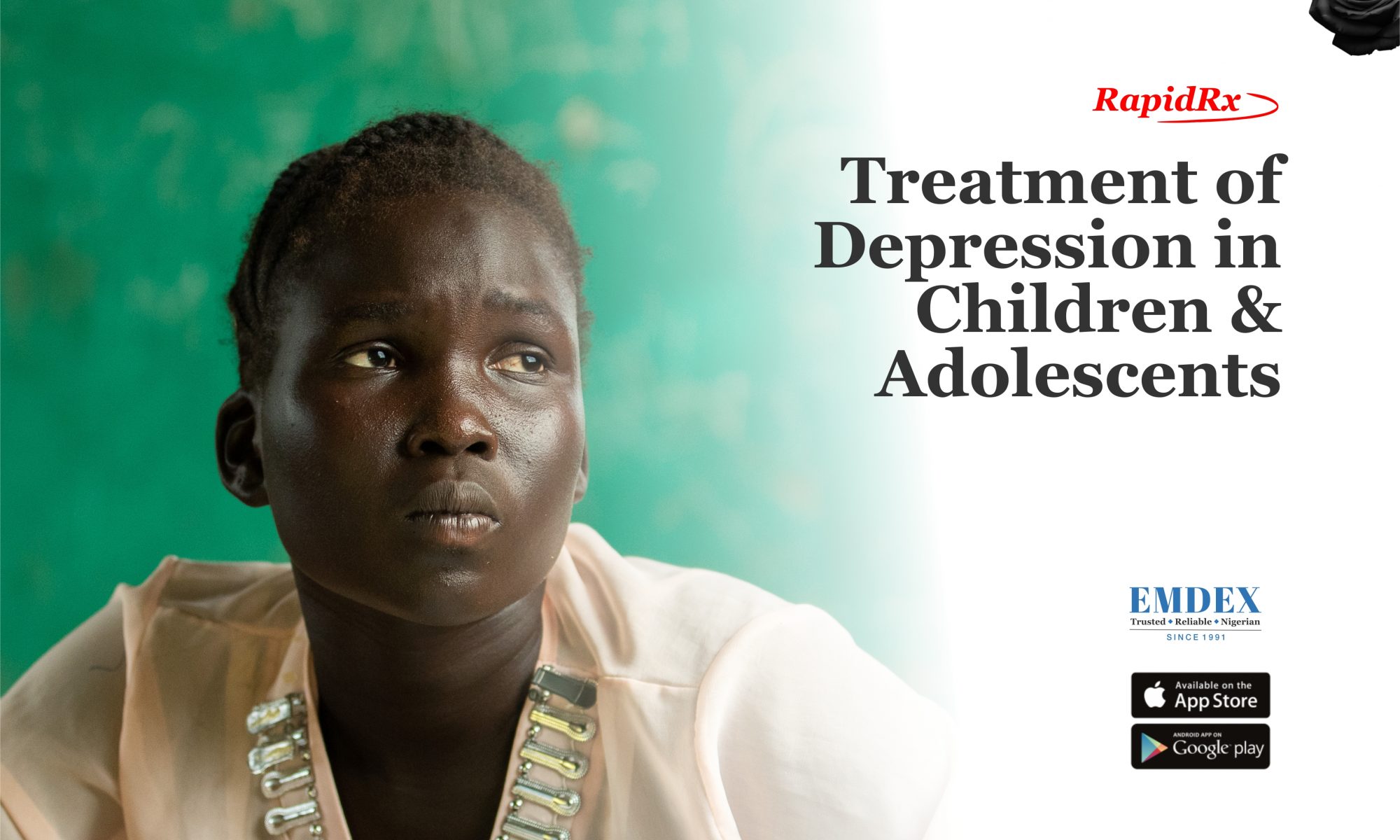Contributed by: Anuolu Bank-Oni, PharmD, CDE, BCGP
Childhood depression can have long-lasting developmental consequences on mental and physical health. Whereas cognitive behavioural therapy and fluoxetine are currently recommended for adolescents with moderate to severe depression, evidence is lacking in regard to treatment of children.
The Agency for Healthcare Research and Quality published a systematic review evaluating the efficacy and safety of nonpharmacological, pharmacological, and combination interventions for child (age range: 7 – 12 years) and adolescent (age range: 12 – 18 years) depressive disorders (major depressive disorder [MDD], persistent depressive disorder [PDD], and depressive disorder not otherwise specified [DD NOS]).
A search of MEDLINE, the Cochrane Library, the Cochrane Central Trials Registry, the Cumulative Index to Nursing and Allied Health Literature, and PsycINFO databases for all trials published up to May 29, 2019 produced 874 studies which were then screened. Of these, 60 studies were deemed eligible for analysis. Approximately 77% of the studies involved paediatric patients with a confirmed diagnosis of MDD only, while the remaining studies included a range of depressive disorders (MDD, PDD, DD NOS, or combinations).
The data revealed the following:
- In paediatric (children and adolescent) patients, psychotherapy (CBT or family therapy) may improve depressive symptoms, response, and functional status. No adverse events were reported with psychotherapy.
- A combination of medication plus psychotherapy may improve depressive symptoms, remission, and functional status when compared with psychotherapyalone.
- CBT and combination therapy (e.g. CBT plus fluoxetine) may be beneficial in patients with comorbid attention deficit hyperactivity disorder (ADHD).
- Selective serotonin reuptake inhibitors (SSRIs) may improve response and functional status in patients with MDD.
- For adolescents with MDD, there is an increased risk of serious adverse events, including suicidal ideation, with SSRIs. The risk of withdrawals due to adverse events is also increased. Paroxetine was noted as having an increased risk of suicidal ideation. Other SSRIs may have similar concerns, but there were insufficient data available. The Food and Drug Administration (FDA) has issued warnings on the suicide risk associated with SSRI use in pediatrics.
- For adolescents with MDD, escitalopram, fluoxetine, CBT, and combination therapy (fluoxetine plus CBT) may improve symptoms.
- The analyses found no evidence of benefit with serotonin and norepinephrine reuptake inhibitors (SNRI), tricyclic antidepressants (TCA), and monoamine oxidase inhibitors (MAOI).
Available evidence is focused on treating adolescents with MDD. Additional research is needed to better understand appropriate treatment regimens for children, depressive disorders other than MDD, and the long-term effects of these interventions.
Reference:
- Viswanathan M, Kennedy SM, McKeeman J, et al. Treatment of Depression in Children and Adolescents: A Systematic Review [Internet]. Rockville (MD): Agency for Healthcare Research and Quality (US); 2020 Apr. (Comparative Effectiveness Review, No. 224.) Evidence Summary

